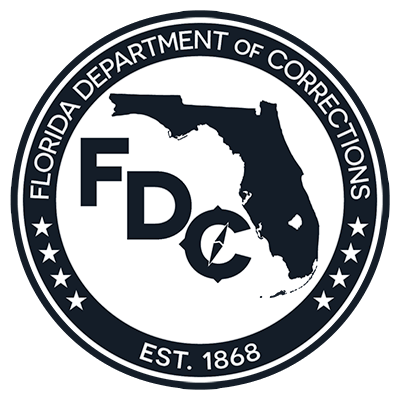Program Structure, Rotations
and
Training Activities
|
|
Structure
The residency consists of 2,000 hours over a one-year period. Nineteen hundred hours of the resident’s time is spent working in Florida Department of Corrections Facilities or associated activities and in directed training. The program’s stipend is based on these 1900 hours. The completion of an additional 100 hours of professional development time supplements the 2000-hour requirement and is to be coordinated between the resident and the Training Director. This time may or may not be compensated based on a resident’s available leave time (see Benefits section). These hours allow the resident to participate in professional activities that are appropriate components of residency training, but that do not directly benefit the Department. For example, the 100 hours may be used for attendance or participation in professional conferences, for research projects, EPPP study programs, licensure exams, interviews or for other professional activities. These professional activities must be approved ahead of time by the training director.
The Florida Department of Corrections funds 4 resident positions each year. The training year runs from September 1st to the following August 31st. The training is comprised of two rotations each lasting six months in duration. One rotation is completed in an outpatient mental health setting at Zephyrhills Correctional Institution, Lake Correctional Institution, or the Lowell Correctional Institution Annex. The second rotation is on an inpatient mental health unit at Zephyrhills Correctional Institution or at Lake Correctional Institution. The residents may also provide consultation to other institutions with complex patients in need of psychological assessment and treatment recommendations as well as program evaluation and management suggestions. The residents will be supervised during the year by at least 2 different faculty supervisors who are licensed as psychologists in Florida.
The Residency program is sponsored, directed, and managed by the Florida Department of Corrections. The Department will be ultimately responsible for the content, design, control, direction, and organization of the program. The Florida Department of Corrections contracts with Centurion of Florida, LLC to provide comprehensive medical, mental health and dental services statewide. As a result, residents are employees of Centurion of Florida, LLC while they participate in the Department’s training program. This allows for the provision of employment benefits and the opportunity to network within an organization with a national presence in the provision of health care services in correctional settings. Centurion of Florida, LLC establishes and maintains human resource and employment processes to include distribution of salary, benefits, and human resources/personnel procedures.
Residents are provided with the same resources as our licensed psychologists. This includes an office with a network computer, a phone, access to clerical support staff and office equipment (printer, copier, scanner and general supplies.)
Training
The postdoctoral residency training director (TD) is a licensed psychologist in the State of Florida and full-time employee of the Florida Department of Corrections whose primary duties are centered on the residency and internship training programs. This person has extensive training and experience as a clinical psychologist working, leading, and training others in a correctional setting. The TD is responsible for organizing the residency training program and its resources, resident selection, and the monitoring, evaluation and improvement of the program’s goals and activities. The TD provides program orientation, didactic training and supervision throughout the year, chairs the training committee, and documents and maintains intern’s records.
We strive toward a competency based educational program. We believe that the development of advanced competence requires opportunities to attain knowledge, skills, and appropriate attitudes. Residents’ training is primarily experiential, consisting of supervised clinical experiences as well as didactic instruction, review of relevant journal and research articles, and other training activities. These training experiences are designed to produce licensed or license ready psychologists who have demonstrated advanced competence with unique training to work in a correctional environment. Through experience, study, and investigation we help them develop information into knowledge. We structure their year to allow repeated application of that knowledge, in combination with self-reflection, feedback from others and objective assessment of outcomes, so that they become more skillful. Professional attitudes are developed through appropriate role modeling, investigation, as well as discussion and feedback about attitudes toward patients, the public, our profession, and the residents themselves.
The residency is designed to provide the postdoctoral experience necessary for advanced practice competence in clinical psychology with incarcerated adult male clients in inpatient and outpatient settings, to meet the postdoctoral training requirement for licensure as a psychologist in the State of Florida and to align with the guidelines for accreditation by the American Psychological Association. Applicants should confirm that our program meets the requirements of any other state board where they may wish to obtain licensure. The program provides specialized experiences and training at an advanced level in a correctional environment so that the resident will be prepared to successfully work in correctional clinical settings. Emphasis is placed on ten areas of competence during the residency year. These areas include Integration of Science and Practice, Ethical and Legal Standards, Individual and Cultural Diversity, Professional Conduct, Therapeutic Intervention, Psychological Assessment and Diagnosis, Supervision, Communication and Interpersonal Skills, Consultation, and Program Organization, Management, Administration and Evaluation.
We Never Walk Alone

